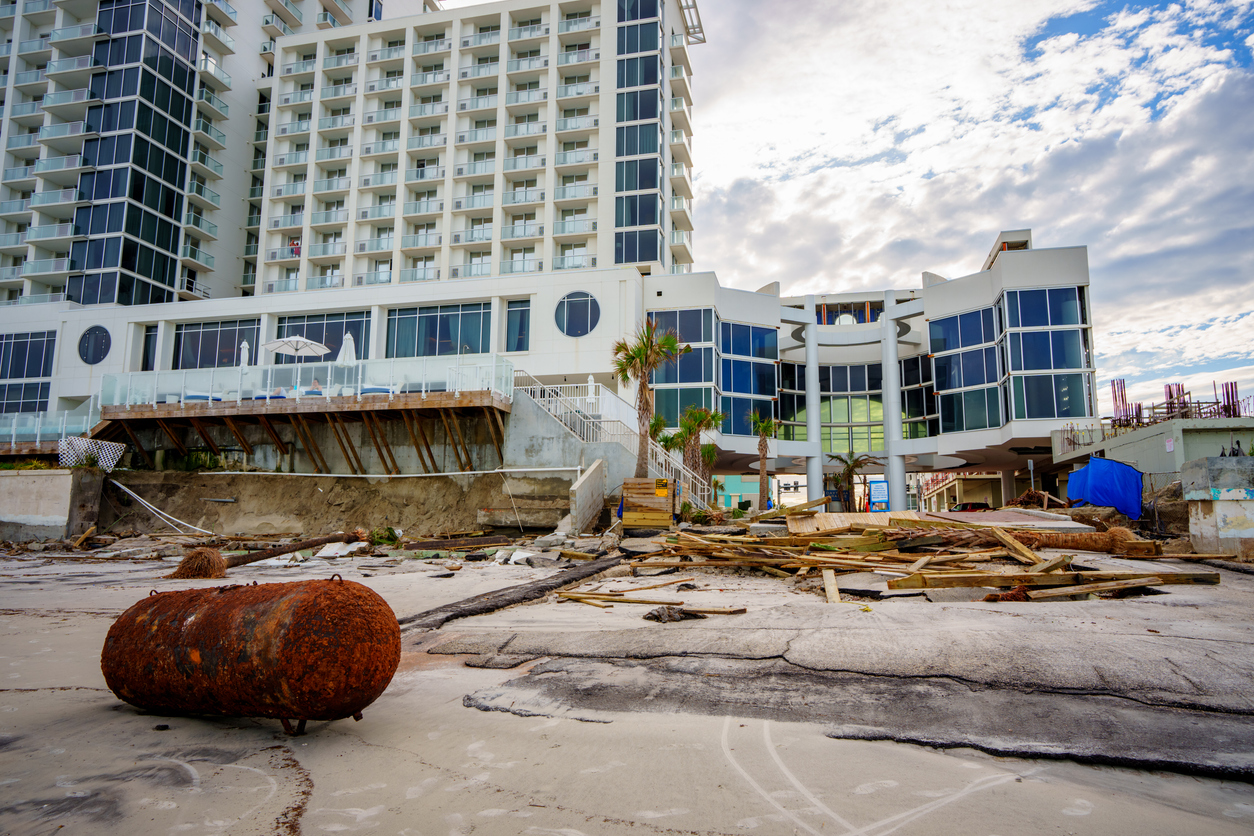
The hospitality industry is constantly evolving, and as 2025 gets underway, hotel owners must prepare for new insurance challenges. From rising property costs to emerging liability risks, adapting to these changes is essential to maintaining financial stability. With increasing claims related to cybersecurity threats, extreme weather, and operational risks, securing the right hospitality insurance is more critical than ever.
How Rising Insurance Costs Impact Hotels
The cost of hotel insurance has been steadily increasing, driven by factors such as property damage claims, liability lawsuits, and unpredictable economic conditions. According to CoStar, hotel property insurance costs per available room have risen significantly in recent years, with some states seeing higher premiums due to increased risks.
Location plays a major role in pricing, as hotels in coastal areas or regions prone to natural disasters often face higher premiums. Large properties with extensive amenities may also see higher costs due to greater liability exposure. Insurers are adjusting rates based on claims history, property condition, and regional risk factors, making it essential for hotel owners to regularly review their policies to ensure they have the right coverage at the best possible rate.
Emerging Risks in Hotel Operations
As the hospitality industry adapts to new challenges, hotel owners must be aware of the evolving risks that impact their coverage needs.
Cybersecurity Threats and Data Breaches
With hotels handling large amounts of guest data, including payment details and personal information, they have become prime targets for cybercriminals. Ransomware attacks and data breaches can lead to financial losses, reputational damage, and legal consequences. A strong cyber liability policy can help mitigate these risks by covering the costs of legal fees, notification requirements, and data recovery efforts.
With hotels handling large amounts of guest data, including payment details and personal information, they have become prime targets for cybercriminals. For example, a cyberattack on Omni Hotels & Resorts in 2024 caused system outages affecting reservations, room access, and payment processing, highlighting the growing risks hotels face.
Ransomware attacks and data breaches can lead to financial losses, reputational damage, and legal consequences. A strong cyber liability policy can help mitigate these risks by covering the costs of legal fees, notification requirements, and data recovery efforts.
Guest Liability and Employee Lawsuits
The rise in liability claims related to guest injuries, foodborne illnesses, and workplace disputes has increased financial risks for hotel owners. Slip-and-fall incidents, bedbug claims, and allegations of negligence can result in costly legal battles. Employment-related lawsuits, including wrongful termination or discrimination claims, are also on the rise. Having comprehensive general liability and employment practices liability coverage is crucial to protect against these claims.
Extreme Weather and Climate-Related Losses
Hotels in areas prone to hurricanes, wildfires, and flooding are experiencing higher insurance costs as climate-related risks become more severe. Some insurers are limiting coverage or requiring higher deductibles for properties in high-risk zones. Business interruption insurance can provide financial relief if a hotel is forced to close due to a natural disaster, helping owners recover lost revenue and cover ongoing expenses.
Expanding Coverage Options for 2025
As risks evolve, hotel insurance policies are adapting to provide better protection. More insurers are offering specialized coverage options to address modern threats, including cyber liability and customized business interruption policies.
For large hotel properties in particular, managing multiple layers of coverage can be complex. Understanding how larger properties handle risk management can help smaller hotel owners refine their own coverage strategies.
How Hotels Can Stay Ahead
Hotel owners who take a proactive approach to risk management can reduce their exposure to claims and rising insurance costs. Implementing strong security protocols, upgrading property maintenance efforts, and regularly reviewing policies with an experienced broker can help ensure hotels remain fully protected.
As insurers continue adjusting to market trends, staying informed about hospitality insurance options is crucial. Working with an insurance provider that understands the complexities of hotel operations ensures that owners have the right protection in place for 2025 and beyond. Call Provident Protection Plus today to explore customized insurance solutions that help safeguard your business in an evolving industry.
About Provident Protection Plus
For more than 65 years, Provident Protection Plus has served businesses and residents across several states nationwide. Today, we are a wholly owned subsidiary of Provident Bank, the region’s premier banking institution. To learn more about our coverage options, contact our specialists today at (888) 990-0526.



